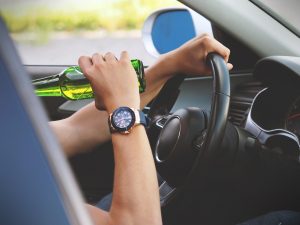 A Maryland man with an active felony warrant was recently arrested in Delaware after he parked next to a police officer with an open container of alcohol in his car. Just after 1 p.m. on an otherwise normal Friday afternoon a Rehoboth Beach police officer was writing a parking ticket when he observed the 29-year old man from Laurel pull up next to him. The officer would have paid little attention to the man, but for the two containers of alcohol that were immediately visible inside the car. After spotting the booze the Delaware cop had no choice but to investigate further, and when he did, he noticed the odor of an alcoholic beverage and other signs of impairment. While roadside sobriety exercises proved too difficult to administer due to a language barrier, the officer did feel he had enough evidence to arrest the man. A blood alcohol test confirmed the officer’s suspicions and the man was booked for drunk driving.
A Maryland man with an active felony warrant was recently arrested in Delaware after he parked next to a police officer with an open container of alcohol in his car. Just after 1 p.m. on an otherwise normal Friday afternoon a Rehoboth Beach police officer was writing a parking ticket when he observed the 29-year old man from Laurel pull up next to him. The officer would have paid little attention to the man, but for the two containers of alcohol that were immediately visible inside the car. After spotting the booze the Delaware cop had no choice but to investigate further, and when he did, he noticed the odor of an alcoholic beverage and other signs of impairment. While roadside sobriety exercises proved too difficult to administer due to a language barrier, the officer did feel he had enough evidence to arrest the man. A blood alcohol test confirmed the officer’s suspicions and the man was booked for drunk driving.
Upon confirming the man’s identity, Rehoboth PD then realized their drunken defendant had an outstanding felony warrant out of Wicomico County. The warrant was issued by the District Court in Salisbury back in January of 2016 and included one charge of felony third degree burglary. Other charges on the warrant included multiple counts of assault, malicious destruction of property and misdemeanor burglary in the fourth degree. The Laurel man also had a warrant for failing to appear in court for a jailable traffic citation resulting from driving without a valid license. Before he can answer for the charges in Maryland the defendant must first be transferred to the Wicomico County detention center. As of now he’s being held in the Sussex Correctional Institution in Delaware pending extradition.
This case is hardly the crime story of the year, but it is of interest to the Blog as we head into the summer months where thousands will flock to the beaches of Maryland and Delaware. In this particular case the defendant made it easy on the cop, but police officers will be focused on open container violations as the tourist season ramps up. This is especially true in Ocean City, where possession of an open container of alcohol actually carries the possibility of jail time. The Ocean City police force increases in size by dozens of officers during the summer months, and these new cops are often hungry to make their mark. Open container, minor in possession of alcohol, fake ID and disorderly conduct cases are some of the most common crimes during in June, July and August. Visiting the coast during the summer months can be a great time, but unfortunately hundreds of summer beachgoers are forced to come back to a Worcester County courtroom in the Fall to answer for a criminal citation or summons. Walking down coastal highway with a beer or refreshing cocktail may seem harmless but it’s illegal and not something that is overlooked by police officers. The OC PD will write hundreds of alcohol and marijuana citations this summer so be aware and make sure it isn’t your name on one of them.
 Criminal Defense Lawyer Blog
Criminal Defense Lawyer Blog




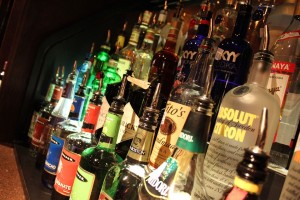
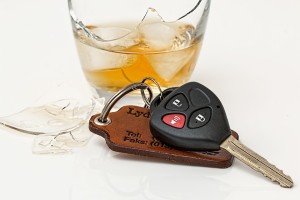
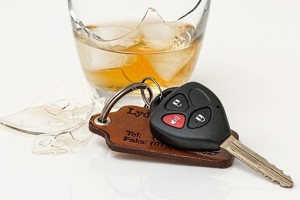
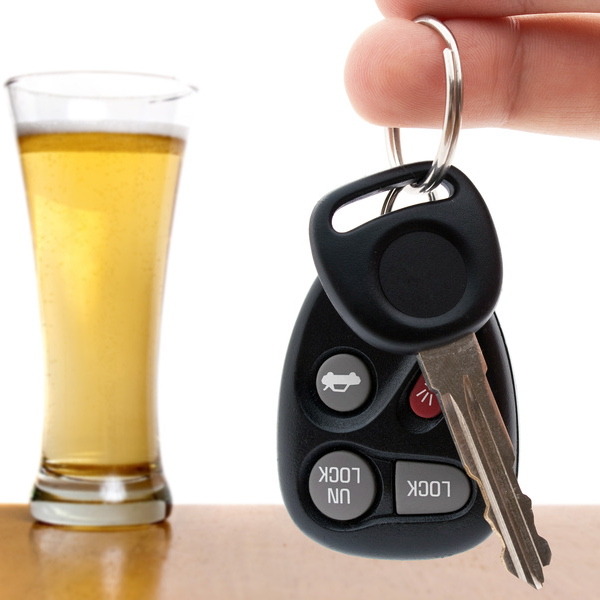 Drunk driving has become the most hotly debated and visible crime in the entire country. The amount of media attention and lobbyist money that is directed toward DUI education and prevention simply has no comparison. Sure, the war on drugs is trudging along, and sucking up millions of taxpayer dollars, but it targets dozens of substances, and not one single offense. Drunk driving stands alone for a variety of reasons including the fact that it is so common, and its defendants do not fall within a specific age or socioeconomic group. Teenagers, professionals, celebrities, cops, politicians etc. can be the defendants, and unfortunately the victims of this offense. All the media and lobbyist attention does not go unnoticed by lawmakers and state agencies, and as a result there are pages of laws and regulations governing DUI policy. The courts are charged with the task of interpreting each of these regulations, and this past week Maryland’s highest court released a lengthy opinion after being called upon to do just that.
Drunk driving has become the most hotly debated and visible crime in the entire country. The amount of media attention and lobbyist money that is directed toward DUI education and prevention simply has no comparison. Sure, the war on drugs is trudging along, and sucking up millions of taxpayer dollars, but it targets dozens of substances, and not one single offense. Drunk driving stands alone for a variety of reasons including the fact that it is so common, and its defendants do not fall within a specific age or socioeconomic group. Teenagers, professionals, celebrities, cops, politicians etc. can be the defendants, and unfortunately the victims of this offense. All the media and lobbyist attention does not go unnoticed by lawmakers and state agencies, and as a result there are pages of laws and regulations governing DUI policy. The courts are charged with the task of interpreting each of these regulations, and this past week Maryland’s highest court released a lengthy opinion after being called upon to do just that.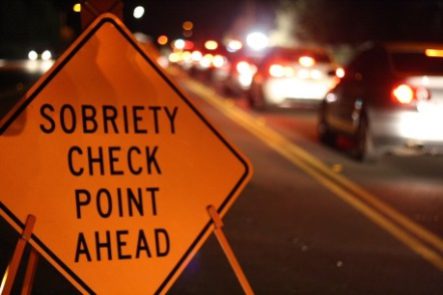 Each year as the summer months approach the Maryland State Police tries to send a clear message that DUI enforcement will be a top priority. This year the MSP sent that message by way of a DUI saturation patrol during a targeted Cinco De Mayo enforcement. Numerous state police installations as well as the State Police Impaired Driving Effort or SPIDRE were out in full force this past Monday to specifically look for impaired and unsafe drivers. When the dust settled on the morning of May 6th, troopers had tallied 81 drunk driving arrests, which is nearly eight times more arrests than on normal weekday. Troopers also issued over 700 citations and over 1,000 speed violation warnings. And yes, we are surprised as well that the state troopers issued more warnings than tickets. The MSP issued a press release the following day, but it did not seem to pick up a ton of media attention, as only one outlet that we could find published the story. Nonetheless, this is definitely a sign of more targeted enforcements and press releases to come. And with the Memorial Day holiday just weeks away you can bet that another DUI saturation patrol is on the horizon.
Each year as the summer months approach the Maryland State Police tries to send a clear message that DUI enforcement will be a top priority. This year the MSP sent that message by way of a DUI saturation patrol during a targeted Cinco De Mayo enforcement. Numerous state police installations as well as the State Police Impaired Driving Effort or SPIDRE were out in full force this past Monday to specifically look for impaired and unsafe drivers. When the dust settled on the morning of May 6th, troopers had tallied 81 drunk driving arrests, which is nearly eight times more arrests than on normal weekday. Troopers also issued over 700 citations and over 1,000 speed violation warnings. And yes, we are surprised as well that the state troopers issued more warnings than tickets. The MSP issued a press release the following day, but it did not seem to pick up a ton of media attention, as only one outlet that we could find published the story. Nonetheless, this is definitely a sign of more targeted enforcements and press releases to come. And with the Memorial Day holiday just weeks away you can bet that another DUI saturation patrol is on the horizon.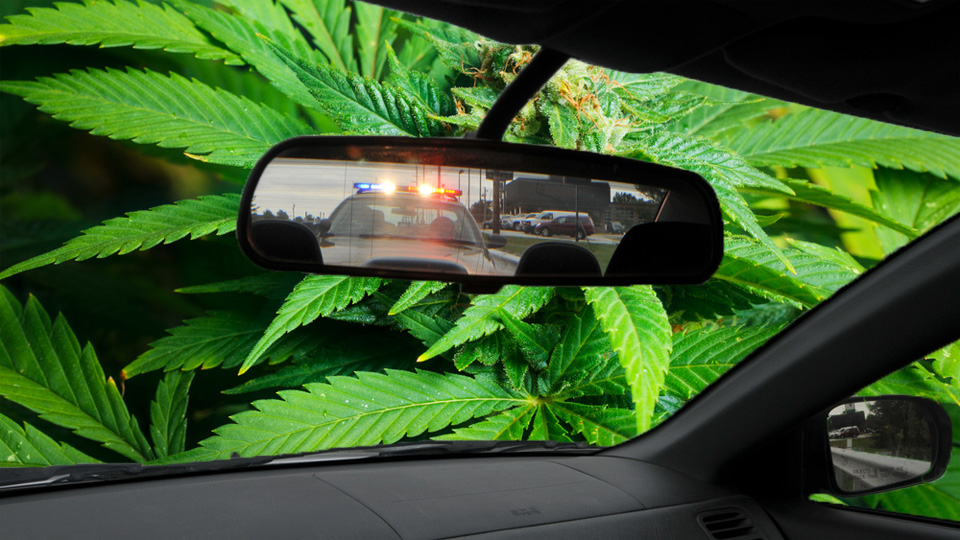 A popular argument against the legalization of marijuana is that our roads will become packed with stoned drivers, and thus become more dangerous. While this argument lacks any sort of baseline data, it has appealed to those who are set on condemning medical and recreational pot use at all costs. It did not prove persuasive though in Maryland’s 2014 legislative session, as medical marijuana easily passed. The revised medical program will become law in October, and could be fully functioning within 18 months. But legalization for recreational use will undoubtedly be the hot topic in our state’s next few legislative sessions (until it becomes law, possibly within the next 3-5 years), and the marijuana DWI argument is sure to surface. Maryland already incorporates drug use in its DWI statute, but there are no specific provisions, which refer to marijuana testing and legal limits. We can look to other states to answer some of the questions about how the legislature, police officers, and prosecutors will handle this issue.
A popular argument against the legalization of marijuana is that our roads will become packed with stoned drivers, and thus become more dangerous. While this argument lacks any sort of baseline data, it has appealed to those who are set on condemning medical and recreational pot use at all costs. It did not prove persuasive though in Maryland’s 2014 legislative session, as medical marijuana easily passed. The revised medical program will become law in October, and could be fully functioning within 18 months. But legalization for recreational use will undoubtedly be the hot topic in our state’s next few legislative sessions (until it becomes law, possibly within the next 3-5 years), and the marijuana DWI argument is sure to surface. Maryland already incorporates drug use in its DWI statute, but there are no specific provisions, which refer to marijuana testing and legal limits. We can look to other states to answer some of the questions about how the legislature, police officers, and prosecutors will handle this issue. The state Senate recently passed a bill that would ban the sale of grain alcohol throughout Maryland. The bill passed by a wide margin, 37 to 10 to be exact, and now awaits a vote in the House of Delegates before reaching the governor’s desk. This same bill passed the Senate each of the last two legislative sessions, but failed to gain momentum, and ultimately stalled in the House. This year may be different though, as the chairman of a House subcommittee on alcoholic beverages has publicly backed the bill and will no doubt try to convince his colleagues of the bill’s merit. The main goal of the grain alcohol ban is to lower the risk of binge drinking fatalities, injuries, and legal incidents such as DUI and even date rape on college campuses where grain alcohol is popular. The product is most commonly sold under the label of Everclear, which is 190 proof or 95 percent alcohol. It is commonly mixed with fruit juice or other mixers and placed in a large cooler for consumption. The argument from supporters of the ban is that college students have no idea how much alcohol there are consuming, and often drink more than they intend. Whether the grain alcohol itself is to blame is a question that is subject to much debate.
The state Senate recently passed a bill that would ban the sale of grain alcohol throughout Maryland. The bill passed by a wide margin, 37 to 10 to be exact, and now awaits a vote in the House of Delegates before reaching the governor’s desk. This same bill passed the Senate each of the last two legislative sessions, but failed to gain momentum, and ultimately stalled in the House. This year may be different though, as the chairman of a House subcommittee on alcoholic beverages has publicly backed the bill and will no doubt try to convince his colleagues of the bill’s merit. The main goal of the grain alcohol ban is to lower the risk of binge drinking fatalities, injuries, and legal incidents such as DUI and even date rape on college campuses where grain alcohol is popular. The product is most commonly sold under the label of Everclear, which is 190 proof or 95 percent alcohol. It is commonly mixed with fruit juice or other mixers and placed in a large cooler for consumption. The argument from supporters of the ban is that college students have no idea how much alcohol there are consuming, and often drink more than they intend. Whether the grain alcohol itself is to blame is a question that is subject to much debate.